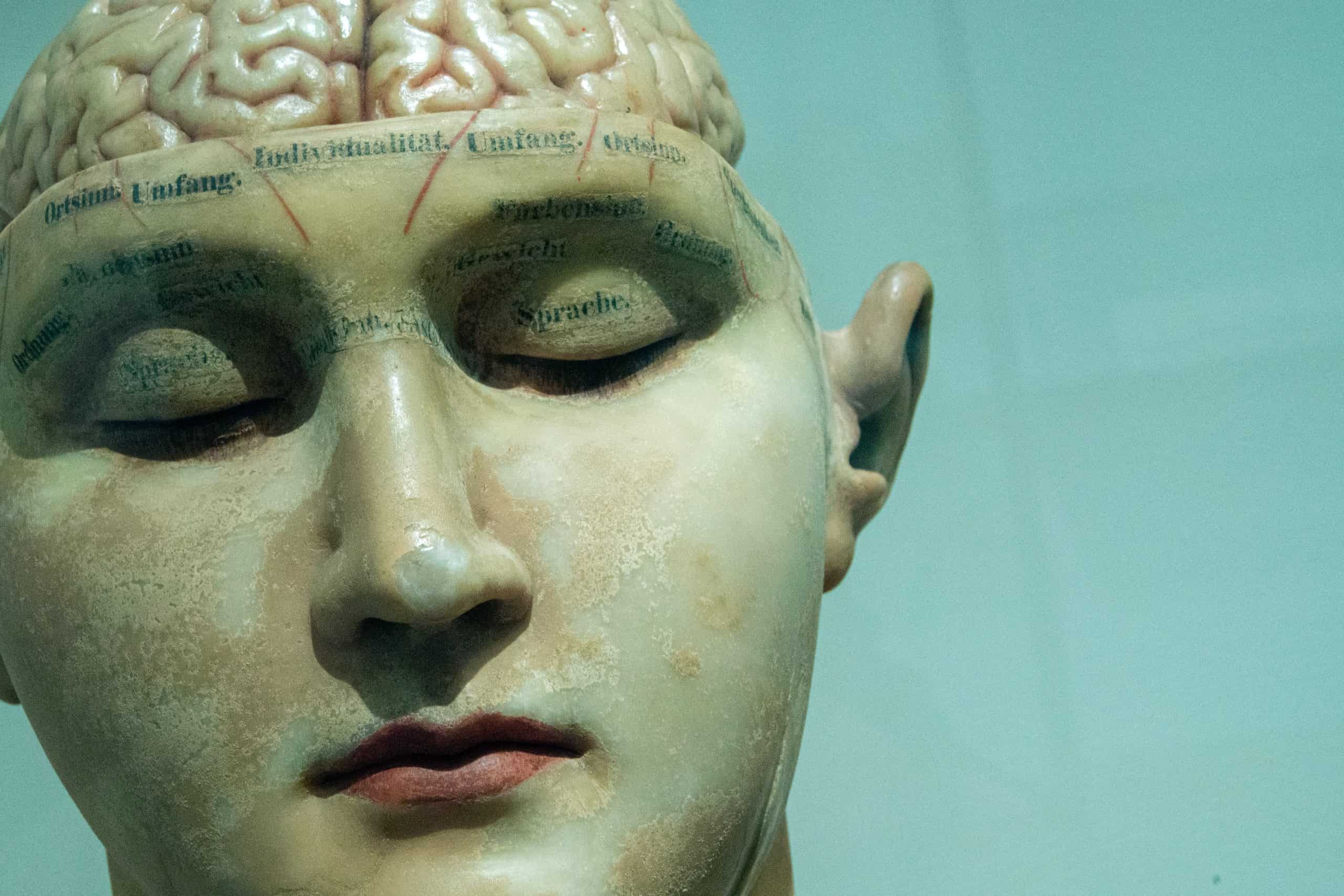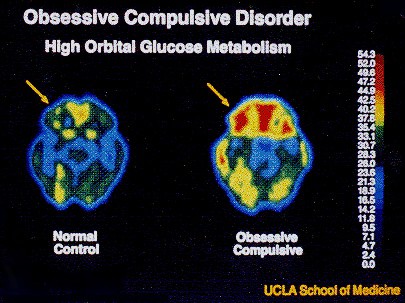Can OCD Cause Brain Damage?

Obsessive-Compulsive Disorder (OCD) is a complex mental health condition that affects millions of people worldwide.
It is characterized by intrusive thoughts (obsessions) and repetitive, ritualistic behaviors (compulsions) that can significantly impact an individual’s daily life and overall well-being.
While OCD is primarily considered a psychiatric disorder, there has been ongoing research exploring its potential impact on brain structure and function, raising the question: Can OCD cause brain damage?
How Does OCD Affect the Brain?
Obsessive compulsive disorder is believed to involve abnormalities in the brain’s circuitry and chemical functioning. Such findings may help explain the various symptoms of ocd.
While the exact cause of OCD is not fully understood, research suggests that several factors contribute to the development of OCD, including genetic, neurological, and environmental factors.
Neuroimaging studies (positron emission tomography) have shown that individuals with OCD often have differences in brain structure and activity compared to those without OCD. This type of brain scan data was used to measure blood flow in the brain.
Moreover it has been proven that OCD negatively impacts gray matter in the brain. The gray matter in your brain is packed with neurons and is vital for processing information.
Obsessive-Compulsive Disorder has a tendency to reduce the volume of gray matter in the following regions of the brain (using scan data)
Some key findings of the brain areas involved:
Hyperactivity in the orbitofrontal cortex (OFC)
The OFC is involved in decision-making, behavior regulation, and response inhibition.
In individuals with OCD, there is often heightened activity in this region, leading to difficulties in suppressing unwanted thoughts and behaviors.
Overactivity in the caudate nucleus
The caudate nucleus is part of the basal ganglia, a group of structures involved in motor control and habit formation.
Overactivity in the CN is thought to contribute to the repetitive behaviors and rituals observed in OCD .
Dysregulation of the serotonin system
Serotonin is a neurotransmitter that plays a role in mood regulation and the transmission of information between brain cells.
There is evidence to suggest that abnormalities in the serotonin system may contribute to the development of OCD symptoms.
Altered communication between brain region(s)
Obsessive compulsive disorder is associated with disrupted communication between different brain regions, including the orbitofrontal cortex, anterior cingulate cortex, and striatum.
In particular, there are differences in a circuit that links a part of the brain called the striatum, thalamus, and parts of the frontal cortex.
Medical researchers have shown that OCD is a brain disorder that is caused by incorrect information processing.
These regions are involved in decision-making, emotion regulation, and the integration of sensory motor skills.
A large literature supports the existence of parallel circuits linking the basal ganglia, thalamus, and cortex with circuits communicating with separate areas of the frontal cortex.
It’s imperative to understand that these brain abnormalities are not the sole cause of OCD but rather contribute to its development and maintenance.
Related Article(s) – What Causes OCD To Get Worse?
OCD Brain Activity

Obsessive-Compulsive Disorder (OCD) is associated with specific patterns of brain activity that contribute to the symptoms experienced by OCD patients.
While the exact neural mechanisms of OCD are not fully understood, research has provided valuable insights into the various brain regions involved and the underlying neurochemical imbalances and brain differences
Here are some key aspects of brain activity in OCD:
Frontal-Striatal Circuitry
OCD is believed to involve dysfunction within a specific circuit known as the frontal-striatal circuit.
This circuit includes the orbitofrontal cortex (OFC), anterior cingulate cortex (ACC), and the basal ganglia, particularly the caudate nucleus and putamen.
These areas play a crucial role in regulating thoughts, emotions, and behaviors.
Hyperactivity in the Orbital and Medial Prefrontal Cortex
Studies using neuroimaging techniques, such as functional magnetic resonance imaging (fMRI), have shown increased activity in the orbital and medial prefrontal cortex of patients with OCD.
The hyperactivity in these regions is associated with the experience of intrusive thoughts and obsessions.
Increased Activity in the Anterior Cingulate Cortex (ACC)
The ACC, a region involved in error detection and conflict monitoring, has been found to be hyperactive in individuals with Obsessive Compulsive Disorder .
This heightened activity may contribute to the excessive worry, doubt, and need for precision that are common in OCD.
Dysregulation of Basal Ganglia
The basal ganglia, which includes the caudate nucleus and putamen, are responsible for coordinating movement and facilitating habitual behaviors.
The circuitry of the basal ganglia can be divided into two opposing pathways: the direct pathway , which facilitates action, and the indirect pathway , which inhibits it.
In Obsessive Compulsive Disorder , there is evidence of overactivation and impaired functioning in these regions, leading to the repetitive and ritualistic behaviors characteristic of the disorder.
Serotonin Imbalance
Neurotransmitters, such as serotonin, play a role in the regulation of mood, anxiety, and impulse control.
Dysfunction in the serotonin system has been implicated in OCD, as lower levels of serotonin or impaired serotonin transmission have been observed.
This is why selective serotonin reuptake inhibitors (SSRIs), which increase serotonin levels, are commonly used in medication treatment for OCD.
It’s important to note that brain activity in OCD is complex and involves interactions among multiple regions and neural pathways. Further research is needed to fully understand the intricacies of these neural mechanisms and how they contribute to the development and maintenance of OCD symptoms.
Related Article(s) – Planning Care For A Patient With OCD
Understanding the OCD Brain
In simple terms, the brain of someone with Obsessive-Compulsive Disorder (OCD) functions differently compared to someone without OCD (healthy people).
Obsessive Thoughts
People with OCD often have unwanted and intrusive thoughts that keep coming back to their minds. These thoughts can be distressing and cause anxiety. These include taboo thoughts
Compulsive Behavior
To try and ease the anxiety caused by these thoughts, individuals with OCD often feel compelled to perform certain actions or rituals.
These actions are called compulsions and are done in an attempt to reduce the anxiety or prevent something bad from happening.
Brain Circuits
There are specific pathways or circuits in the brain involved in Obsessive Compulsive Disorder . One important circuit is called the cortico-striato-thalamo-cortical (CSTC) circuit.
It includes different areas of the brain that communicate with each other.
Hyperactivity
Studies show that OCD patients have excess activity in frontal regions of the brain, including the orbitofrontal cortex (OFC) and anterior cingulate cortex (ACC), which could explain their intrusive thoughts and high levels of stress, respectively.
This hyperactivity can contribute to the experience of obsessive thoughts and worries.
Communication Issues
The communication between different brain regions may not work as smoothly in people with ocd.
This can result in difficulties in processing information, evaluating potential threats or errors, and controlling behavior.
Emotional Impact
The OCD brain is more sensitive to perceived threats or mistakes. This heightened sensitivity can lead to increased anxiety and a stronger urge to perform compulsive behaviors.
Overall, the brain of someone with Obsessive Compulsive Disorder (ocd) tends to have altered activity and communication patterns in specific areas involved in decision-making, emotion regulation, and habitual behaviors.
These differences contribute to the development and maintenance of OCD symptoms, including intrusive thoughts and repetitive behaviors.
Related Article(s) – What Will Happen if OCD is Left Untreated?
Can OCD Cause Brain Damage?
While OCD was once classified as an anxiety disorder — and patients are often anxious about their behavior — it’s now seen as a separate mental illness.
There is currently no evidence to suggest that OCD directly causes brain damage. OCD is a mental health disorder characterized by specific patterns of thoughts and behaviors.
While it can lead to distress and impairment in daily life, it does not typically result in physical damage to the brain.
However, it’s important to note that chronic stress, anxiety, and certain behavioral patterns associated with OCD may have indirect effects on overall brain health.
Prolonged exposure to stress hormones and excessive anxiety can impact brain function and potentially contribute to changes in brain structure and connectivity over time.
These changes, however, are generally considered reversible with appropriate treatment and management of the OCD symptoms.
It’s also worth mentioning that studies have shown that effective treatment for OCD, such as cognitive-behavioral therapy (CBT) and medication, can lead to improvements in brain activity and connectivity, suggesting that the brain can undergo positive changes with proper intervention.
If you have concerns about brain health or the impact of OCD on your brain, it’s advisable to consult with a healthcare professional who can provide a thorough evaluation and guidance based on your specific circumstances.





